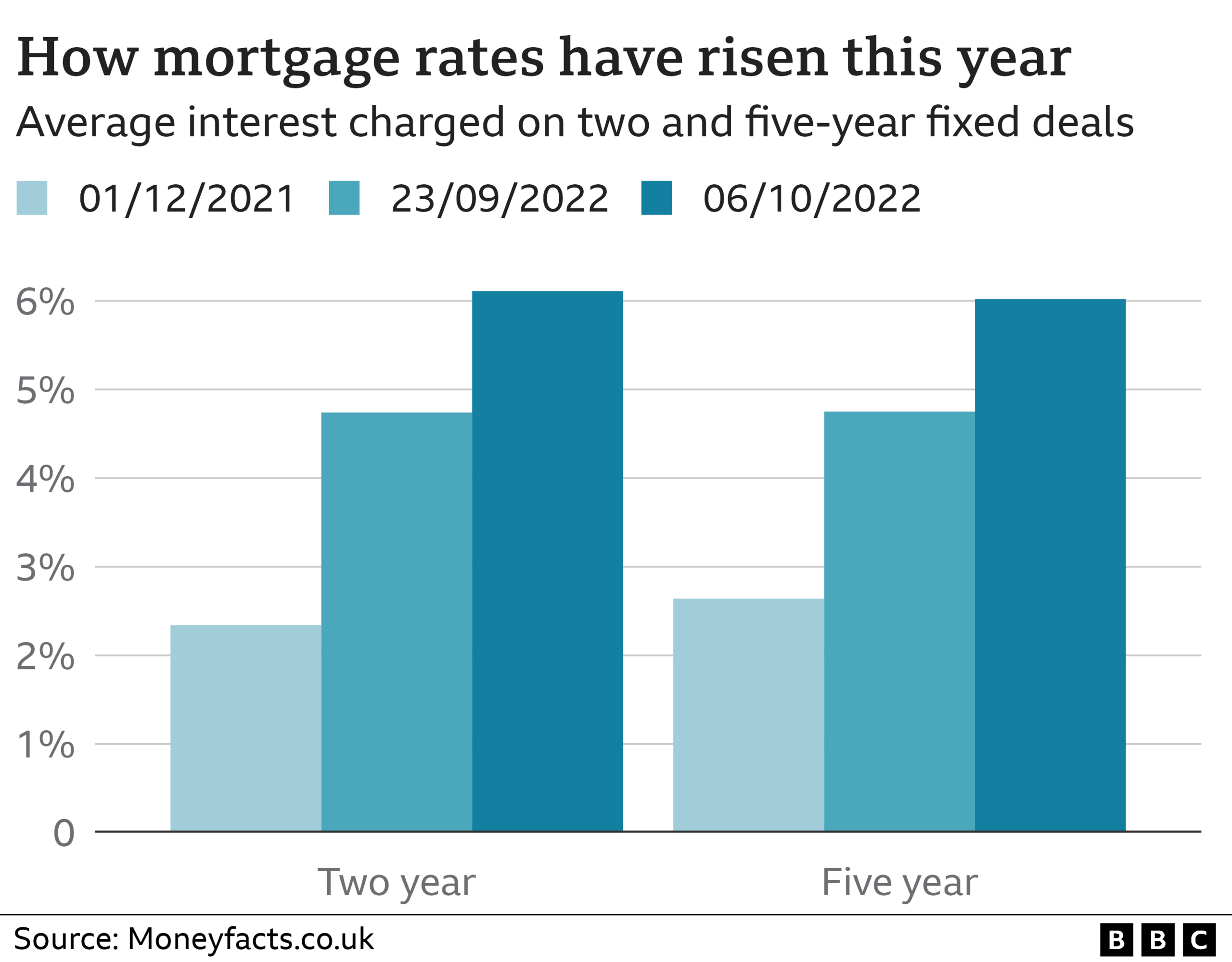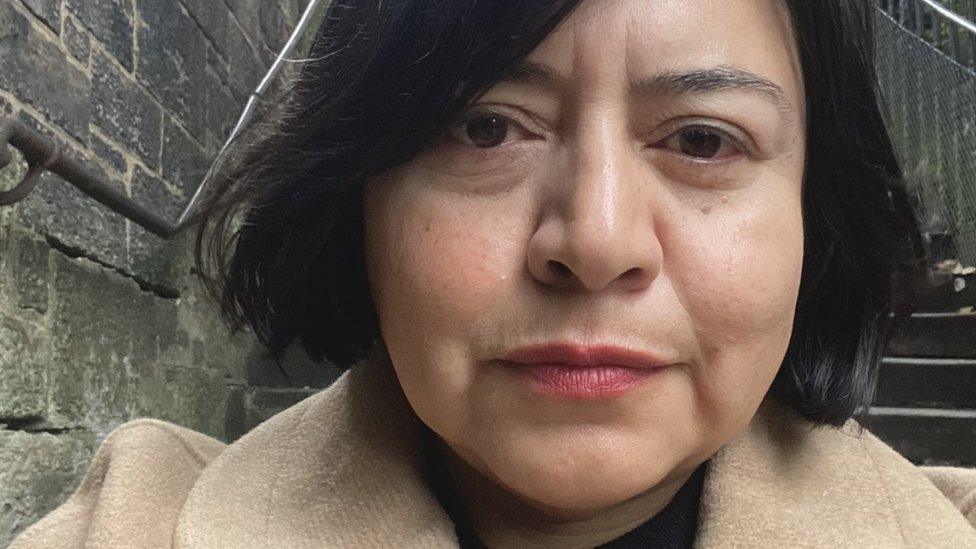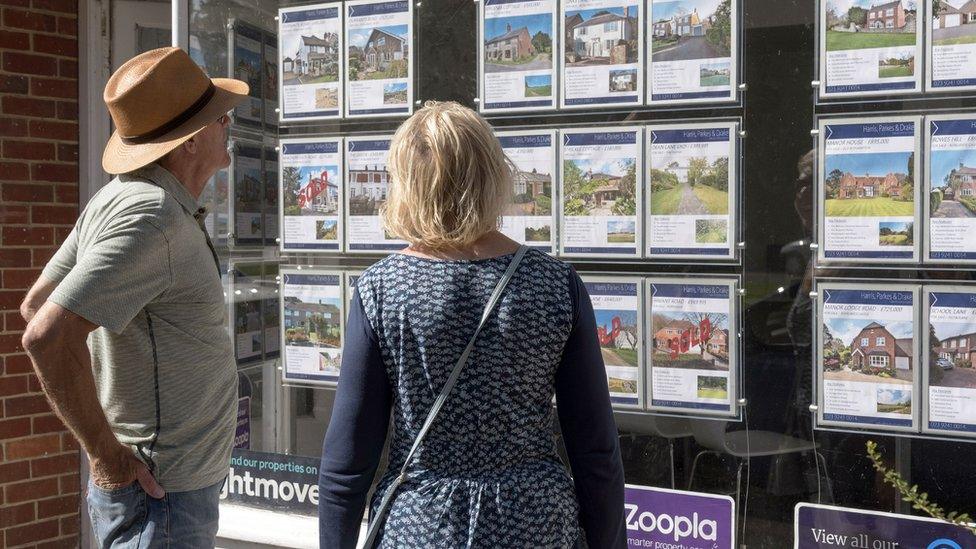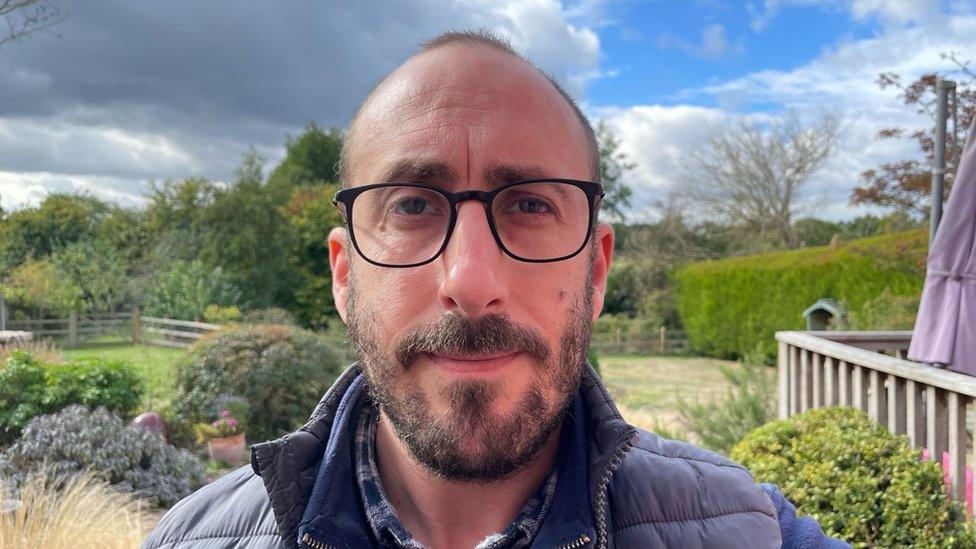Homeowners 'tearing their hair out' over rising rates and rents
- Published

During the financial crisis in 2008, Philip Wilson says he became a somewhat reluctant landlord.
The property market had slowed considerably so he decided to rent out, rather than sell, two properties - a flat and a house in North and West Yorkshire.
Now, the upheaval in the mortgage market means he is being forced to push up the rent for his tenants, and is considering whether he will eventually have to sell up.
"I really feel for my tenants," the 64-year-old says. "One of them is really struggling, she pays her rent in parts when she has the cash. But now I'm going to have to tell her that her rent is going up. She has been [paying] £395 a month, and it's now looking like it will go up to £450. That is quite an increase.
"But I've swallowed several interest rate rises this year without increasing rents. Now I have to pass them on.
"Hand on heart, once this crisis is over, I'll be selling both properties. I feel sorry for my tenants but I can't be a charity."
He is one of many people pointing out that the rising costs of mortgages affects more people than just the 100,000 or so homeowners a month whose existing fixed-rate deals are expiring.
Landlords, like Mr Wilson, are having to pass on higher costs to tenants if they are on variable rates, which have seen consistent increases throughout the year, or more expensive new fixed deals.
The most obvious change in the last fortnight, following the mini-budget, has been with fixed-rate deals.

On Wednesday, the interest rate on the average two-year fixed rate mortgage hit 6% for the first time for 14 years, according to the financial information service Moneyfacts.
The following day, a typical five-year fixed rate product had a rate over 6% for the first time for 12 years.
That has left many people unsure and uneasy about what to do next.
Alice Heywood, a digital curator from Edinburgh, has been looking at what the increases mean for her when her current deal expires in June.
"I've been overpaying my mortgage by £100 as I'm really keen on reducing the overall term. I was doing well with my current deal. I knew interest rates would go up, of course they would, but I thought it would be an incremental hike, not an overnight jump," the 47-year-old says.

Alice Heywood described the situation as gut-wrenching
She is facing repayments on a new deal that are £200 a month higher than she had expected.
"It's so gut-wrenching because I'd been doing all the right things - really trying to reduce my mortgage debt, getting a permanent and stable job. I just feel like the rug has been pulled from underneath my feet."
While Ms Heywood's stomach has been churning, Michael Bird says he and his girlfriend have been tearing their hair out.
The 45-year-old from Sheffield was expecting to get close to a house purchase any day, but that is now at risk because first-time buyers down the chain have been unable to secure a mortgage at the higher rates.
"The whole process was taking ages. Now waiting to hear from our solicitors if anything can be done," he says.
"It's very frustrating. We have an 11-month-old sleeping in our room and were hoping to have her in her own room by now.
"Now we just have to wait again."
Chancellor Kwasi Kwarteng met with officials from the major mortgage lenders on Thursday to discuss the situation.
A Treasury statement following the meeting said that "while it is the responsibility of the sector to provide the best value for mortgage rates", the chancellor confirmed the Treasury would "continue to work closely with the sector" in the weeks and months ahead.
During her speech at the Conservative Party conference, Prime Minister Liz Truss said that the government "will do what we can" to support homeowners.
However, she said that the benchmark interest rate was set independently by the Bank of England.
Related topics
- Published6 October 2022

- Published28 September 2022

- Published5 October 2022

